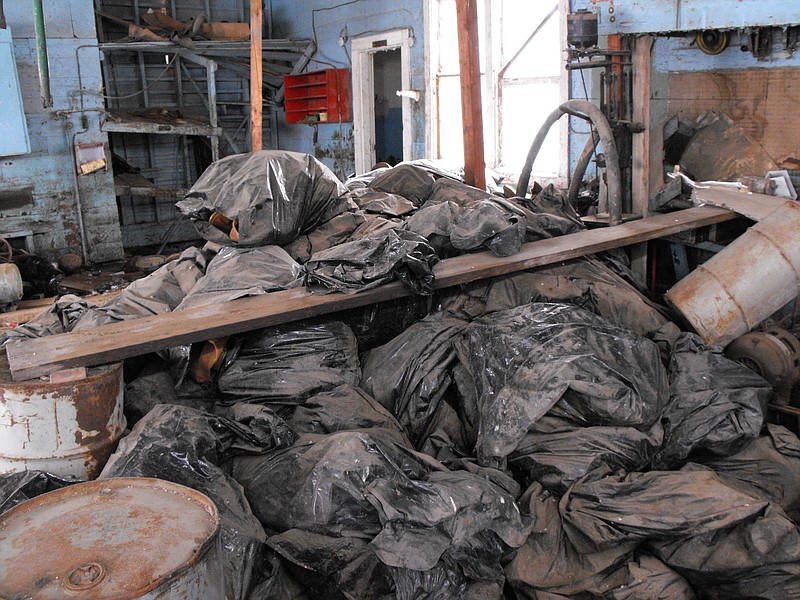BISMARCK, N.D. (AP) - Officials in North Dakota are reporting what may be the state's biggest incident of illegal dumping of radioactive oil filter socks, the nets that strain liquids during the oil production process.
State Waste Management Director Scott Radig said hundreds of the tubular filters were discovered last week in an abandoned building in Noonan, a town of about 200 people in northwestern North Dakota. Radig, who viewed pictures of the scene, said it's likely to be more than twice as large as the state's next-largest dumping incident found last month in McKenzie County.
"It appears, unfortunately, to be the biggest one we've found," Radig said. "And it appears to have been there for quite some time."
Filter socks, which can become contaminated with naturally occurring radiation, are banned for disposal in North Dakota. Oil companies are supposed to haul them to approved waste facilities in other states such as Montana, Colorado and Idaho, which allow a higher level of radioactivity in their landfills.
State regulators and law enforcement officials are investigating, Radig said. He said the filter socks found in Noonan have been tested, and show low levels of radioactivity.
"The public is not at risk as long as people don't break into the building and start handling them," Radig said.
Health officials say that since the state's oil production has soared in the past several years, radioactive filter socks increasingly are being found along roadsides, in abandoned buildings or in commercial trash bins of an unsuspecting business - sometimes that of a competing oil company.
Divide County Chief Sheriff's Deputy Rob Melby said there were "piles and piles" of filter socks scattered through a 4,000-square-foot building that once housed an auto shop.
"They're piled up waist deep or higher," he said. "There's a lot of stuff in there."
Deputy Zach Schroeder said he counted more than 200 trash bags of 55 gallons each filled with the filter socks.
Schroeder said authorities have no leads on who may have left the filters in the building. He said the building's owner was charged with felony larceny in an unrelated incident and has yet to be located.
"He is a fugitive," Schroeder said.
Noonan Mayor Cyndie Fagerbakke said she and most other residents in town are "disgusted" with whoever dumped the radioactive waste in the building, which sits derelict about a block from downtown.
"This is blatant disregard of the health and welfare of our community," she said. "It's criminal and the people responsible should be punished very, very stringently."
Fagerbakke said the old auto garage has changed hands many times over the years.
She called the state's lack of oversight of oil field waste "ludicrous."
"I'm not at all happy about how the state regulates these radioactive filter socks," said Fagerbakke, a farmer. "Why isn't the state more on top of this and why don't they have a more stringent plan for getting rid of this stuff?"
The state Health Department, in response to the growing number of illegally tossed filter socks, announced last week that new rules are being written to track oil field waste. A draft of the new rules is slated for public review in June.
That's little salve for residents in Noonan, who only have been instructed to stay away from the radioactive site on the edge of town, Fagerbakke said. No one has been told when the site will be cleaned up or who will handle it, she said.
"This is a risk to the city, but the state says it's somebody else's problem," the mayor said.
Each of the filter socks is more than two feet long and about eight inches in diameter. Some of them have serial numbers on them, but Radig said it's not possible to track the owners from that information.
"If we ultimately don't find the responsible party, the property owner is responsible," Radig said.
If the property owner cannot be located, the site may be eligible for cleanup under an abandoned well site reclamation fund, paid for with oil company fees, he said.

